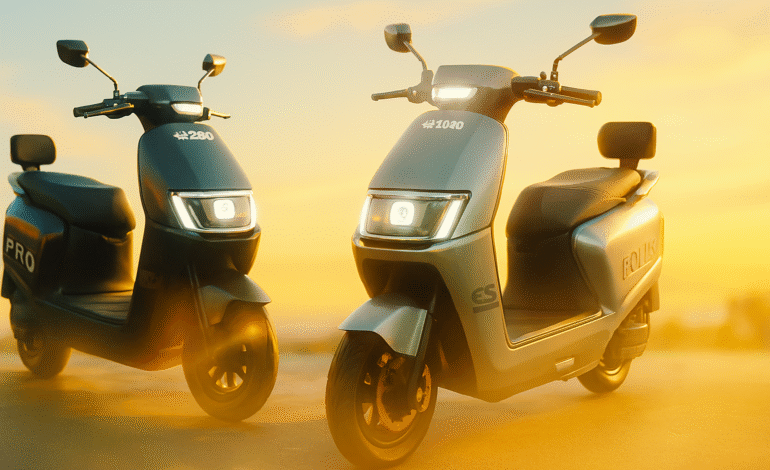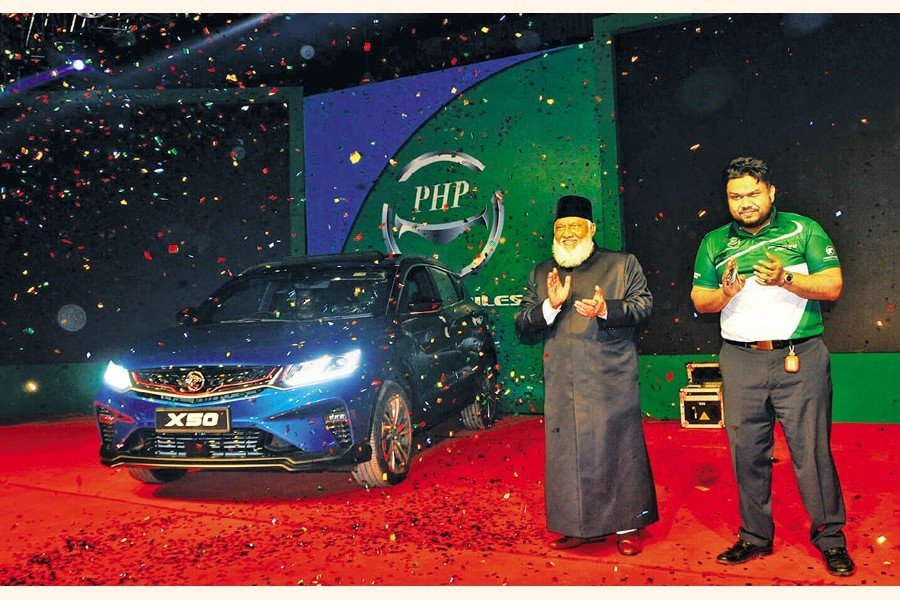How E-Bikes Transforming Commuting in Bangladesh

Rise of e-bikes
E-bikes are making significant strides in Bangladesh and quietly revolutionising mobility. As commuters navigate busy roads and sprawling cities, many are transitioning from petrol motorcycles to e-bikes. This shift is fueled by cost savings, heightened environmental awareness, and changing lifestyles. Electric two-wheelers are rapidly gaining popularity among Bangladeshis, transforming daily life and reshaping the transportation sector.
Booming Demand: The Numbers Speak
In just a few years, the demand for e-bikes in Bangladesh has risen sharply. Between 2022-23 and 2024-25, imports climbed from about 2,446 units worth nearly Tk 9 crore to 10,053 units valued at over Tk 47 crore. Leading international brands such as Revoo and Yadea dominate the market, while homegrown companies including Walton, Akij, and Runner are strengthening their positions with more affordable options. A significant portion of e-bikes—around 20 to 30 percent—are imported as separate parts for local assembly. This not only reduces costs but also helps develop domestic expertise and capabilities in manufacturing.
Why Riders Are Choosing E-Bikes
The surge of e-bikes can be explained by several compelling reasons. First, the savings are substantial. Operating a petrol motorcycle typically costs Tk 2 to 3 per kilometre in fuel, but an e-bike requires only 10 to 30 paisa per kilometre in electricity. Maintenance costs are also lower, since there are fewer moving parts and no need for frequent oil changes. For many families, this means cutting transportation expenses by as much as 80 per cent, which translates into significant household savings over time.
Environmental awareness is another powerful motivator. E-bikes produce zero emissions at the point of use and are far quieter than traditional motorcycles. Many riders are drawn to the idea of reducing their carbon footprint while also enjoying a cleaner and more comfortable riding experience. Commuters such as Ruksana Hossain in Dhaka mention that both savings and the environmental benefits influenced their decision to make the switch.
Safety and accessibility are equally important factors. Young professionals, especially women, are increasingly choosing e-bikes because they are viewed as safer and easier to handle. Parents feel more comfortable when their daughters ride them, since the vehicles have speed limits that discourage reckless driving. Older riders and homemakers also appreciate the simplicity of e-bikes, finding them more approachable than heavy motorcycles. The appeal, therefore, cuts across age and gender, showing how e-bikes meet diverse needs in society.
Challenges to Wider Adoption
Despite the growing popularity, several obstacles prevent e-bikes from achieving even greater adoption. Charging infrastructure remains limited. Most users rely on home charging, which can take seven to eight hours to fully recharge a battery. Although fast charging technology exists, it is not widely available in Bangladesh. This creates range anxiety, as riders worry about running out of power on longer trips or highway rides. The lack of battery-swapping stations or public charging networks further slows down confidence in switching fully to electric mobility.
Regulatory challenges also complicate the picture. Official records show that out of 6.5 million registered vehicles in Bangladesh, 4.7 million are motorcycles, yet only 261 are listed as electric two-wheelers. This suggests that thousands of e-bikes on the road are not yet formally registered, raising concerns about regulation, safety standards, and integration into the national transport system. Without clear policies, e-bikes risk remaining in a grey area of mobility.
Role of Policy and Industry
Policy support and industry initiatives are beginning to address these challenges. The government has introduced incentives such as reduced import duties and the removal of VAT and advance taxes on many e-bike components. These changes have made electric two-wheelers more affordable and encouraged more local assembly. In parallel, companies like Walton are investing in domestic production, which will reduce reliance on imports and create opportunities for skilled employment.
The growing variety of available models also benefits consumers. With both international and local brands competing, riders now have access to a wide range of e-bikes suited to different budgets, designs, and battery capacities. This market diversity ensures that electric mobility is not limited to a niche audience but can appeal to mainstream commuters across Bangladesh.
What This Means for Urban Mobility
The rise of e-bikes in Bangladesh signifies a broader shift in urban mobility. By replacing noisy, fuel-burning motorcycles, e-bikes help reduce both noise and air pollution in crowded cities such as Dhaka and Chattogram. For commuters, riding an e-bike offers a cleaner and calmer journey, less dependent on volatile fuel prices. Over time, this shift could reshape commuting culture, making daily travel more affordable, sustainable, and pleasant.
The growing adoption also highlights the need for supporting infrastructure. Battery-swap stations, rapid charging hubs, and better regulatory frameworks could push e-bikes from being an alternative choice to becoming a dominant mode of transport. The economic implications are equally significant. Expansion of local manufacturing, service networks, and charging facilities can generate jobs and investment, creating ripple effects far beyond the transport sector itself.
The Road Forward
For the e-bike revolution to continue, Bangladesh must take deliberate steps. Building a widespread charging and battery-swap network will be essential to overcome range anxiety. Improving registration procedures and setting clear safety standards can formalize e-bikes within the transport ecosystem. Continued government incentives such as tax breaks and easier financing for buyers will also help increase accessibility. Finally, raising awareness through education campaigns about safety, maintenance, and long-term benefits can build public trust and confidence in adopting this new mode of mobility.
A Turning Point for Bangladesh
E-bikes are more than just a passing trend; they are reshaping how Bangladeshis commute and live. Rising fuel costs, growing environmental concerns, and worsening congestion have created the perfect conditions for this transformation. For many riders, the choice of an e-bike is not simply about saving money—it is about achieving a cleaner, safer, and more convenient lifestyle.
The quiet revolution is already underway. Each e-bike sold represents lower household costs, reduced emissions, and a small step toward a more sustainable urban future. If supported by infrastructure and policy, e-bikes could define the next chapter of Bangladesh’s mobility journey—one that is electric, efficient, and accessible to all.






